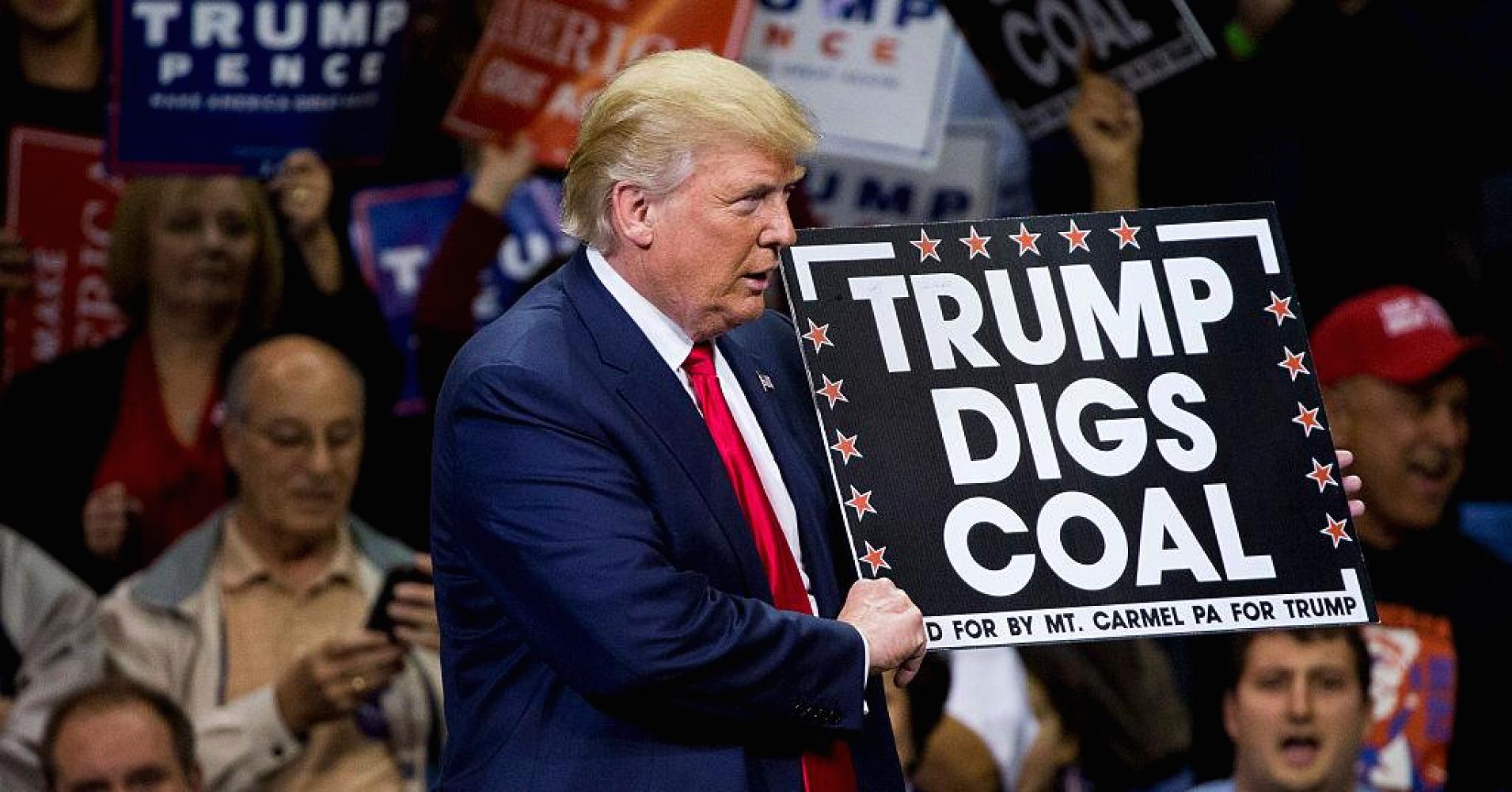As Republican Speaker of the House Paul Ryan enters the twilight of his career, the upcoming midterm elections could be pivotal in determining President Trump’s future in office — a Democratic-controlled House of Representatives, and with it, a Democratic Speaker of the House would inevitably push for the president’s impeachment.
In the meantime, the president has brashly repealed environmental protections, maintained policies that threaten to destroy the present and future states of the environment and ensured that the United States will be neither a leader nor a participant in ongoing conversations regarding climate change solutions, resulting in a devastating environmental legacy.
When all’s said and done in the Trump era, there is little doubt that his environmental impact will reflect a firm denial of science and an unwavering business-as-usual attitude. In his first year as president, Trump massacred existing environmental protections, while throwing his support behind the polluting fossil-fuel industry.
Back in 2012, Trump declared that climate change is a hoax perpetuated by the Chinese and has reiterated the sentiment ever since.
The concept of global warming was created by and for the Chinese in order to make U.S. manufacturing non-competitive.
— Donald J. Trump (@realDonaldTrump) November 6, 2012
Trump’s rationale in deregulating environmental protections is an old one — regulations cost Americans jobs and hurt the economy — but the tired talking point couldn’t be further than the truth. Statistics show that clean energy jobs supply significant employment opportunities, with more than 10 million working in the energy sector.
The fake news claim is nothing new for Trump, however, as most of his jargon tends to be inaccurate, sometimes even delusional. Trump’s justified his Muslim ban as a matter of national security, even though the Department of Homeland Security has disputed the threat; his vision for a southern border wall was to stop drugs and criminals from flowing into the U.S., yet most statistics show that undocumented immigrants are less likely to commit a crime.
Trump’s choice to run the Environmental Protection Agency (EPA), Scott Pruitt, boasts a record of immense opposition against the EPA itself and is a self-identified climate denier. Under his command, the agency has provided limited environmental protection, and more often than not, ventures to reduce and destroy existing protections.
Essentially, Trump is unraveling former President Barack Obama’s entire environmental legacy, while extending the oil and gas industries’ lifelines. He ended Obama’s Clean Power Plan, which planned to slash pollution by over 30 percent by 2013, and reversed Obama’s ban on new federal coal leases. Trump also expedited the construction of the Dakota Access Oil Pipeline that had been delayed by Obama and approved the Keystone XL Pipeline that Obama had vetoed.
The EPA even threatened to suspend the requirement that oil and gas companies report methane, a critical pollutant, before the United States Court of Appeals blocked the effort. He’s reduced the Bears Ears and Grand Staircase National Monuments, in order to increase drilling and mining of coal, oil and natural gas in the area.
Fuel efficiency standards for new cars and trucks produced between 2021 – 2025 are currently being rewritten, while the ban on offshore oil and gas drilling in the Atlantic and Arctic Oceans are being reversed. Trump’s environmental legacy might as well be an obituary column.
Perhaps in his most significant environmental decision to date, Trump infamously withdrew the United States from the Paris Agreement, an international accord constructed to fight climate change on the global stage. With this action, Trump cemented the United States as a model of denial and neglect.
Trump’s environmental legacy looks especially poor when judged against the environmental progress established by other modern presidents. His predecessors possess legacies of varied environmental beneficence, but few exhibited the severity of Trump’s environmental devastation.
Well before Trump entered the Oval Office, former president George W. Bush reigned supreme as the president with the worst environmental record. A former oil man, his list of environmental assaults over two terms rivals Trump’s already extensive list.
Bush reduced EPA enforcement, attacked parts of the Clean Water and Clean Air Acts and dismantled sections of the Endangered Species Act. He censored crucial climate change data and opened wilderness areas for oil and gas drilling, mining and logging.
Even with Trump and Bush’s damaging legacies, the Republican party still had environmental victories in its history. In sharp contrast with the modern GOP platform, former Republicans presidents such as Richard Nixon and George H. W. Bush held moderate, even positive environmental records.
Nixon’s administration saw the creation of the Clean Air Act and Clean Water Act. H.W. Bush pushed through a strengthened version of the Clean Air Act that reduced urban smog, cut acid rain and controlled toxic chemicals.
His administration also blocked construction of the Two Forks Dam in Colorado, set a 10-year moratorium on oil drilling on several coasts and funneled almost 7 billion dollars into radioactive waste clean-up.
Many experts have concluded that while Bush could have done more, he effectively balanced corporate and environmental interests and generally mitigated environmental harm. Trump, in comparison, has backed big oil, while jeopardizing the legacies of his parties’ predecessors.
On the other side of the political spectrum, Democrats have a brighter environmental track record. Former President Jimmy Carter installed solar panels on the White House, strengthened the EPA, protected over 100 million acres of wilderness in Alaska and established the Superfund program.
His Republican successor Ronald Reagan reversed most of Carter’s policies, tearing down the solar panels as one of his very first orders as president, paralleling Trump’s dismantling succession of Obama.

Obama’s environmental legacy hardly falls short to Carter. The 44th president strove to both institutionalize and incentivize greener ways of living. By establishing tax credits for individual households that support renewable energy, the Obama administration hoped to decrease carbon emissions. He enacted plans for cleaner power, bans on oil drilling and proposals for lower fuel efficiency standards, as well as other efforts that reduced pollution and protected wilderness areas.
With Trump’s unrelenting attack on climate legislation, the future remains uncertain. As his administration continues to deny science, supports environmentally destructive industries and fails to promote the health and safety of citizens, climate change is becoming increasingly damaging, while the window of opportunity to create lasting change draws to a drastic close.

















